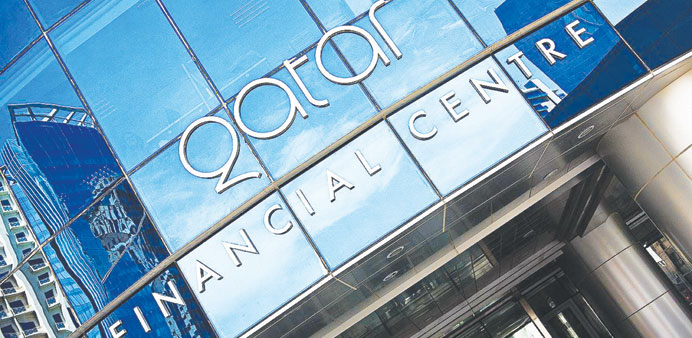|
In March 2014, the QFC Authority (QFCA) published a consultation paper on proposed amendments to the Tax Regulations (Regulations) and Tax Rules under the Regulations (Rules). The consultation paper invited comments on the proposed amendments and closed on April 27, 2014. QFC entities are now awaiting the outcome of the consultation. |
The Regulations were originally promulgated in 2010 and provide for the imposition, administration and collection of tax in accordance with Article 17 of Law No 7 of 2005, the Qatar Financial Centre (QFC) Law, in relation to QFC entities.
This article explores some of the key amendments to the Regulations; however it is worth noting that the Rules provide further detail in respect of the operation of the Regulations and so should therefore be read in conjunction with the Regulations.
1 Key amendments to the Regulations
1.1 Article 8 (Residence and non-residence)
Article 8 has been expanded to include additional detail regarding when a QFC entity will be treated as resident in Qatar for tax purposes. In particular a new Article 8 (2) states that where a QFC entity is treated as resident in a territory outside of Qatar and not resident in Qatar for the purpose of any double taxation agreement, such an entity will be treated as not being resident in Qatar for the purpose of the Regulations.
Furthermore, new Article 8 (3) clarifies the position of QFC entities which are branches, by stating that they shall not be treated as resident in Qatar unless the place of effective management of the enterprise of which it is a branch is in Qatar.
1.2 Article 10 (Local source)
Taxable profits are local source if they arise in or derive from Qatar. Previously Article 10 (3) (b) of the Regulations excluded profit derived from intangible fixed assets including, intellectual property, patents, trademarks or similar assets not registered in Qatar. Article 10 (3) (b) has been deleted as it may have operated to exclude profits derived from intellectual property that arose in or was derived from Qatar.
The Consultation Paper indicates that the Tax Department will elaborate on any issues relating to whether income generated from intellectual property is local source as and when issues arise.
1.3 Article 21 (Deductions not allowable and charitable donations)
Article 21 (1) sets out the deductions which are not allowable deductions from chargeable profits. A new broad Article 21 (1) (l) has been added which states that “expenses, costs or other disbursements which are not shown, to the satisfaction of the Tax Department, to have been incurred in generating local source income” shall not be deductible from chargeable profits. It is also clarified in a new Article 21 (1) (m) that expenditure incurred in connection with obtaining or seeking to obtain a QFC licence will not be a permitted deduction from chargeable profits.
1.4 Article 62 (Computation of chargeable profits of limited and general partnerships)
Article 60 has been updated to clarify that there is a restriction on the deduction allowable for partners’ remuneration. Article 62 (4) has been amended to restrict the amount of partners’ remuneration which can be deducted when calculating the partnership’s chargeable profits to an amount that is considered “just and reasonable” by the Tax Department and up to a maximum of 50% of the chargeable profits of the partnership in any one accounting period.
1.5 New Part 15 (Concessionary rate)
New Part 15 addresses the proposal by the Tax Department for a Qatari-owned QFC entity to elect to benefit from a zero rate of tax. A Qatari -owned QFC entity is an LLC, which fulfils the following conditions:
(i) at least 90% of the ordinary share capital of the LLC is beneficially owned, directly or indirectly, by persons who are Qatari nationals;
(ii) Persons who are Qatari nationals are beneficially entitled to at least 90% of any profits of the LLC available for distribution to equity holders of the LLC;
(iii) Persons who are Qatari nationals are beneficially entitled to at least 90% of any assets of the LLC available to equity holders on a winding up of the LLC; and
(iv) it is not an authorised firm.
If the Qatari-owned QFC entity fulfils the above conditions it may elect for its chargeable profits to be charged to tax at the concessionary rate of 0%.
To benefit from the zero rate of tax, a Qatari-owned QFC entity must pay the concessionary rate charge, which is dependent on the level of share capital; if the Qatari-owned QFC entity has issued share capital of an amount of QR1,500,000 or less, it is QR10,000; and if the Qatari-owned QFC entity has issued share capital of an amount above QR1,500,000, it is QR20,000.
Importantly, an election under Part 15 is not valid if the Tax Department considers that the sole or main purpose of the Qatari-owned QFC entity is avoidance of tax under the Regulations.
To benefit from the new Part 15, the Qatari-owned QFC entity must be made in writing to the Tax Department within six months from the end of the first accounting period to which the election is to apply and once made will remain in force in respect of the three subsequent accounting periods.
1.6 Article 119 (Financial sanctions relating to returns)
Article 119 has been amended to increase the financial sanctions for the late filing of tax returns from a flat rate of QR1,500 to QR3,000, if the return is delivered within 60 days from the filing date and QR6,000 in any other case. The filing date is defined in Article 111.
♦ Please note that all definitions in this article are as per the Tax Regulations (as defined) unless otherwise stated and article references are to the Articles of the Regulations.
♦ If you would like further information please contact David Salt ([email protected]) and/or Emma Higham([email protected]).

